The Six Root Delusions
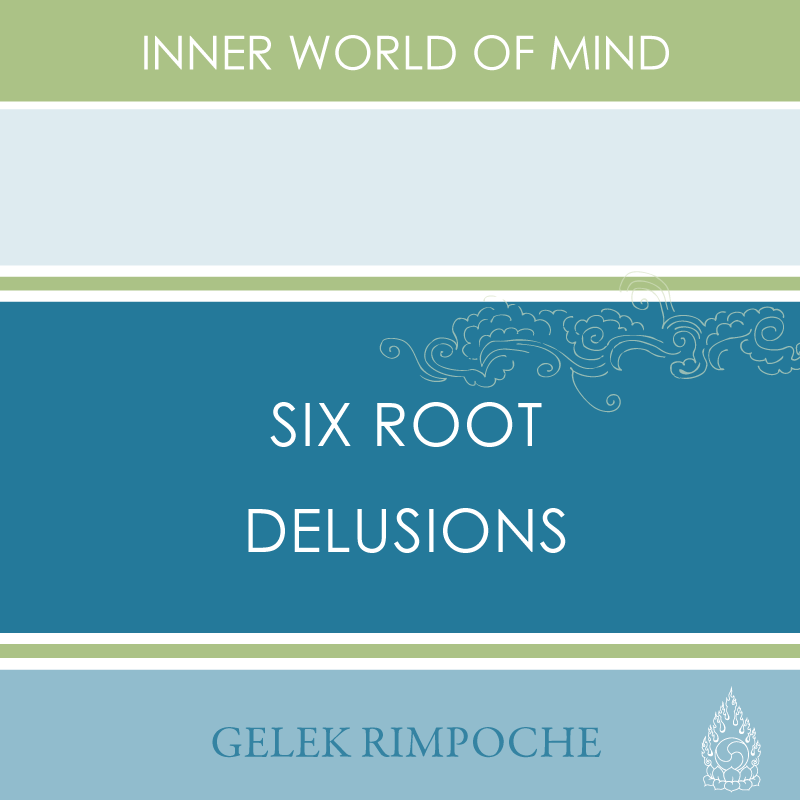
The Six Root Delusions Descriptions
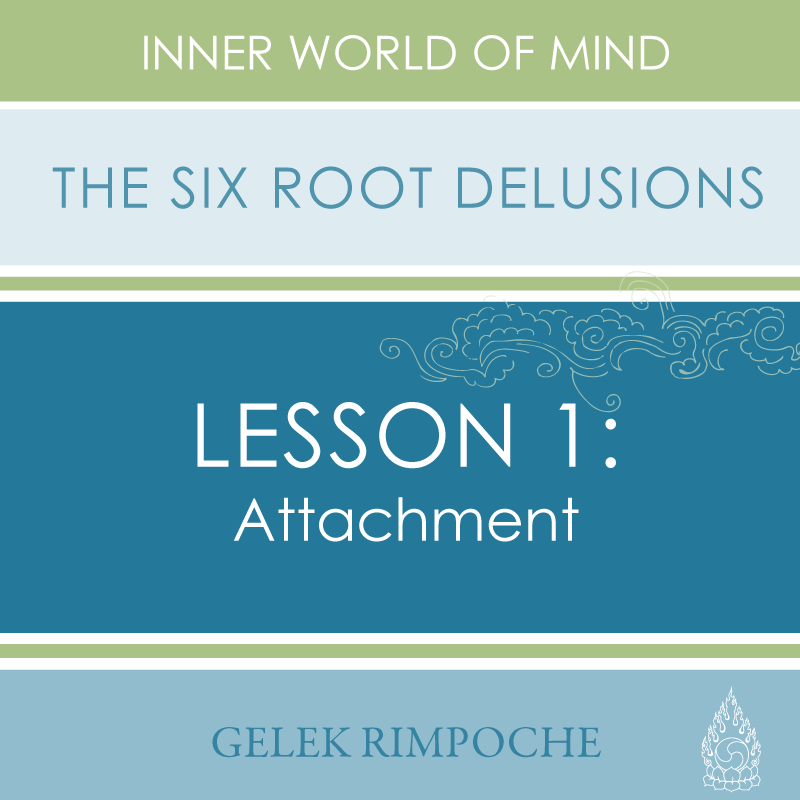
Attachment
Lesson Number 1 of 9 - The Six Root Delusions
Obsessive attachment is the ‘glue’ that binds us to the cycle of suffering. We project exaggerated qualities on to people and objects and our desire to obtain them can become overwhelming.
In this lesson, Gelek Rimpoche explains that though we may experience pleasure from our interaction with our objects of desire, this is only temporary and ultimately leads to an addictive need for more and a lack of fulfillment. Love, on the other hand, allows us to appreciate the people and possessions in our life without becoming obsessed by them.
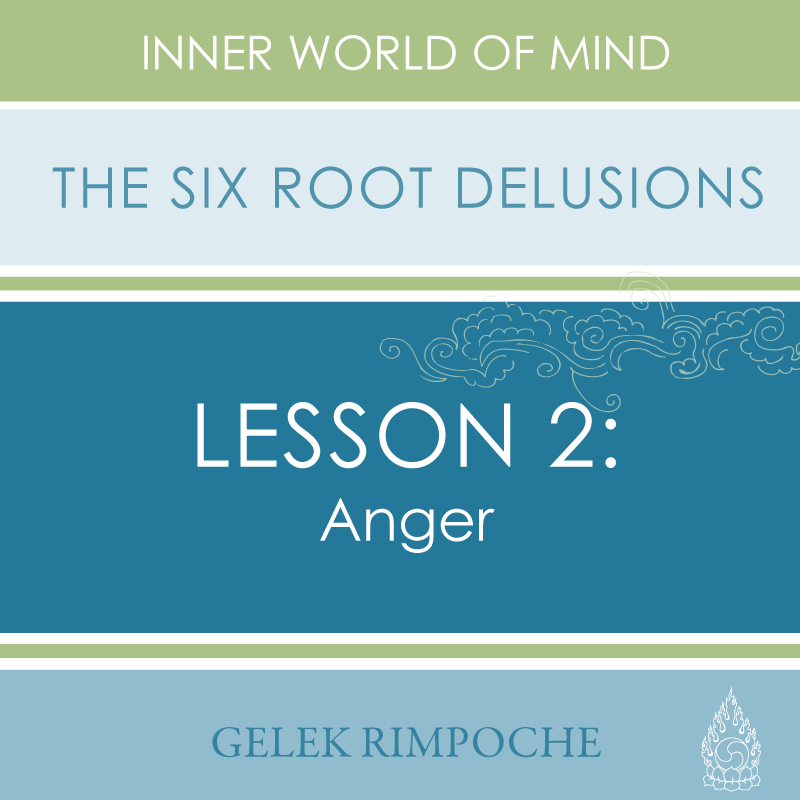
Anger
Lesson Number 2 of 9 - Six Root Delusions
A mind consumed by anger will never be at ease. Anger directed at others and even at oneself is a cause for continuing pain in this life and the next and for a rapid diminishing of our positive potentials.
In this lesson, Gelek Rimpoche explains that if we can recognize and gradually reduce our tendency toward this negative state of mind, it is definitely possible to transform our attitude into one of love and compassion.
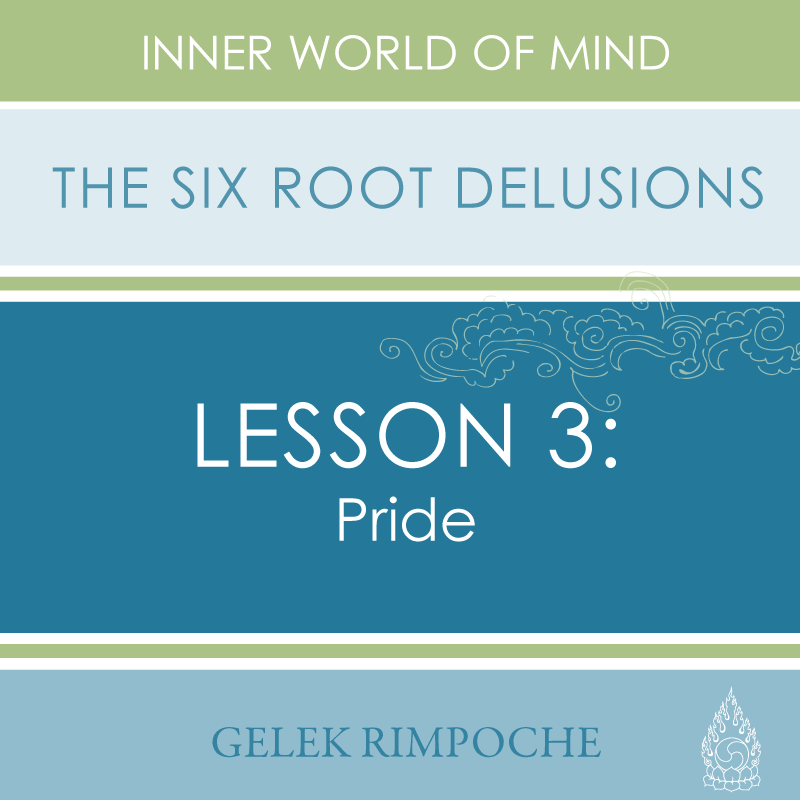
Pride
Lesson Number 3 of 9 - Six Root Delusions
In this lesson, Gelek Rimpoche discusses how to work with people during the death process. He also explains that pride and the feeling of being the most important one in the universe are nothing more than an over-identification with our physical form and our mental activities, and our feelings. We harbor a fear of loss of self in part because of the changing nature of our psycho-physical makeup and we find ourselves grasping at and trying to protect at all costs this illusory sense of ‘I’.
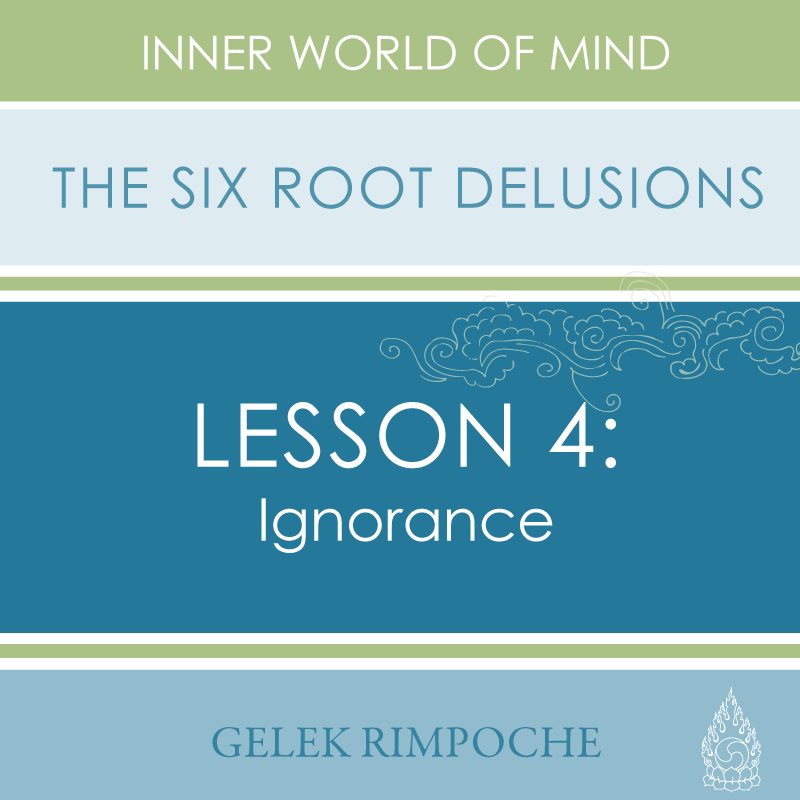
Ignorance
Lesson Number 4 of 9 - Six Root Delusions
Anger and violence lead to difficulties for the victim and the perpetrator. In this lesson, Gelek Rimpoche explains that whether in the family unit or on the international stage, a non-violent attitude should be maintained as the best way to establish harmony. The ignorance of ‘not knowing’ and that of ‘wrong knowing’ and their relationship to anger and obsession need to be examined in order to recognize how they affect our karma and hinder our development.
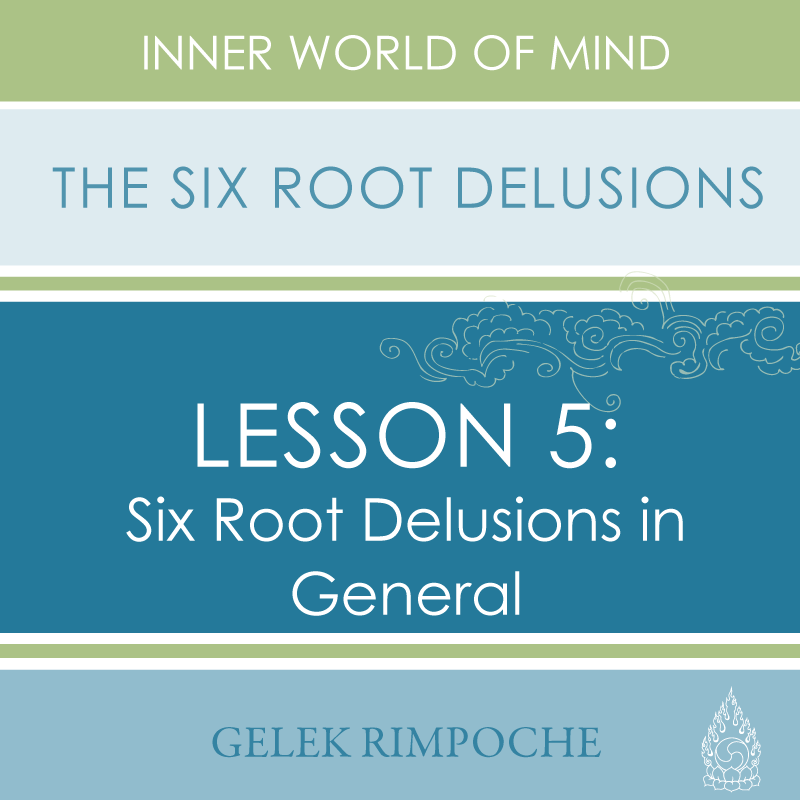
Six Root Delusions In General
Lesson Number 5 of 9
In this lesson, Gelek Rimpoche touches on motivation with regard to the rarity of the teachings today. He also provides an introduction to how the ego functions and how negative emotions affect our mind and its development. He concludes with a brief explanation of how to learn and how to process knowledge.
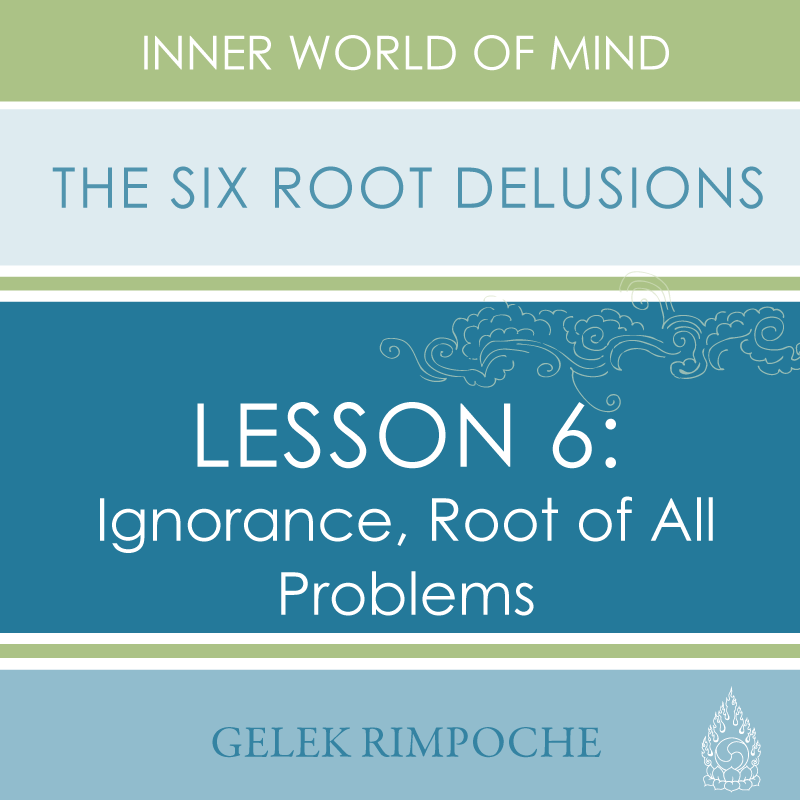
Ignorance, Root of All Problems
Lesson Number 6 of 9
In Buddhist philosophy, ignorance is described as a lack of understanding of karma and a mistaken view of reality. Ignorance is the true source of all our suffering. This kind of ignorance leads us to obsession and anger, which perpetuate our negativity.
In this lesson, Gelek Rimpoche explains that by applying wisdom, we can cut this ‘root’ of ignorance and thereby end the cycle of fear and pain. He concludes with a review of the three root delusions: hatred, obsession and ignorance.
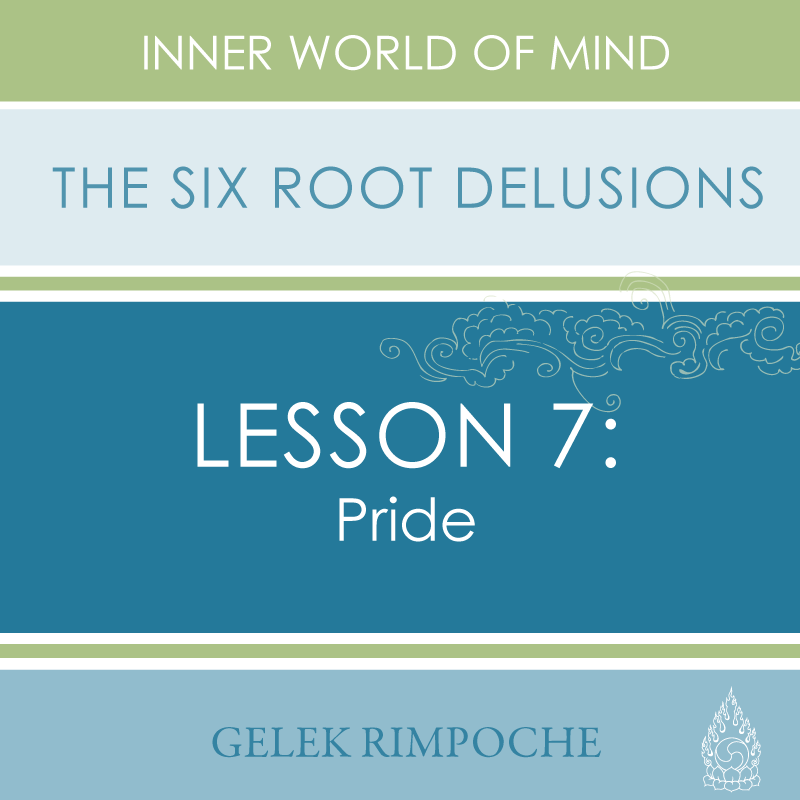
Pride
Lesson Number 7 of 9
The mind is clear and lucid and yet has no tangible form. This mind is the root of our capability and is our means of developing spiritually. In this lesson, Gelek Rimpoche describes that seven types of pride that affect us in various ways such as overinflating our abilities and comparing ourselves favorably to others. Though some forms of doubt are encouraged in order to intensify the investigation of our predicament, doubt toward the authenticity and efficacy of the teachings of the Buddha can seriously restrict our progress on the path.
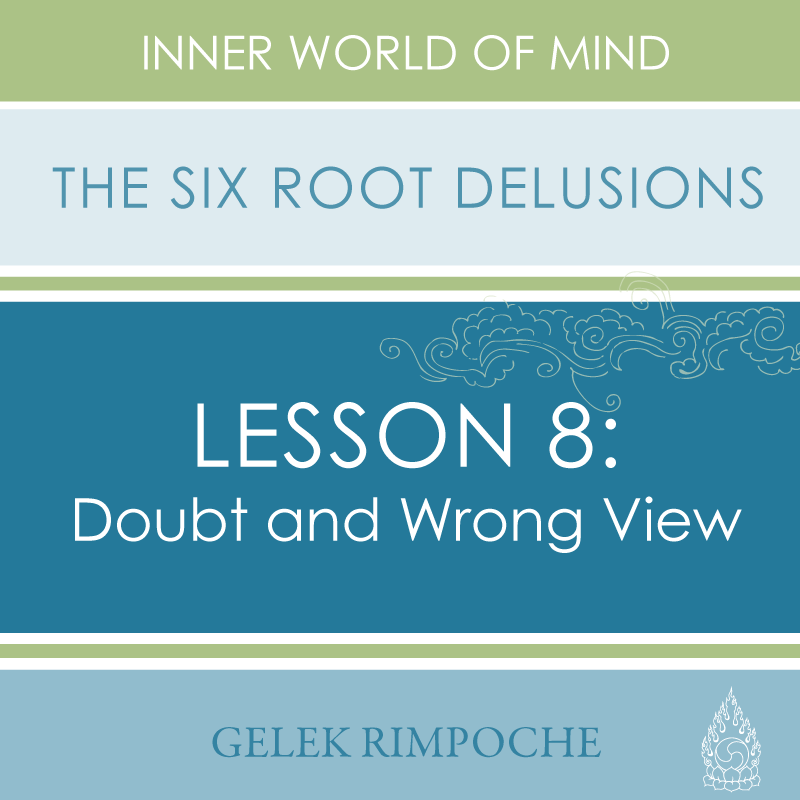
Doubt and Wrong View
Lesson Number 8 of 9
Healthy doubt prevents us from succumbing to ‘blind faith’. But doubt that denies basic truths will severely impede our spiritual development. In this lesson, Gelek Rimpoche explains that understanding the nature of reality requires a tremendous amount of effort. Through examination of the teachings, we develop a faith that enables us to overcome doubt and to progress on the path. By studying the five major categories of wrong view and seeing their faults, we are able to focus our meditations in the correct direction and avoid turning our practice into negativity.
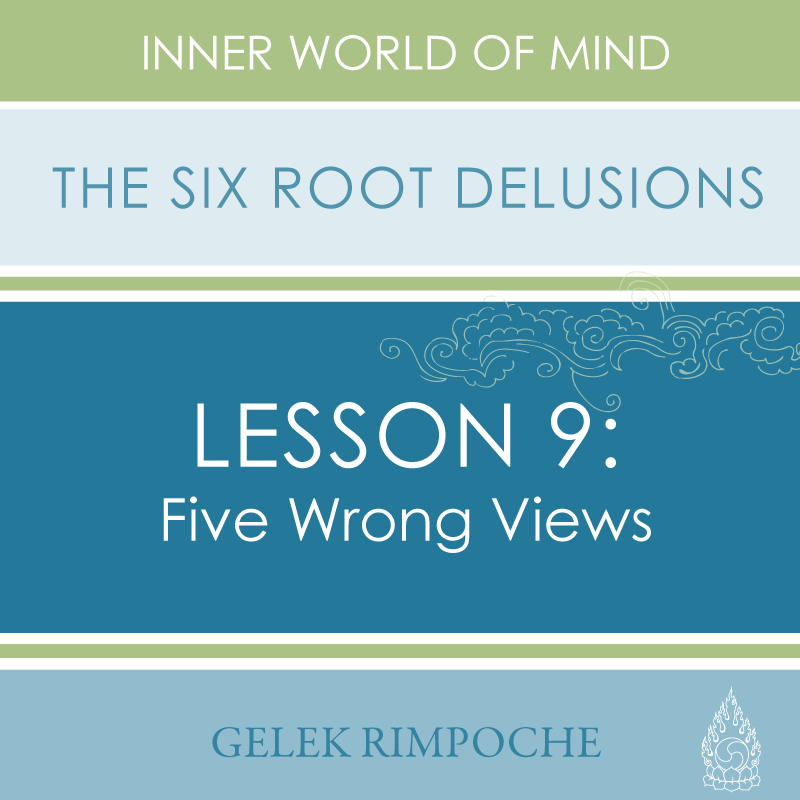
Five Wrong Views
Lesson Number 9 of 9
The incorrect view of our self as not other than our psycho-physical constituents leads to an intense fear of the loss of that self. In this lesson, Gelek Rimpoche explains that five broad categories of wrong view need to be examined including in order to overcome this negative mental faculty: seeing our transitory aggregates as inherently existent; holding extreme nihilistic/eternalistic views; denying causality; observing useless precepts; holding to erroneous views.

